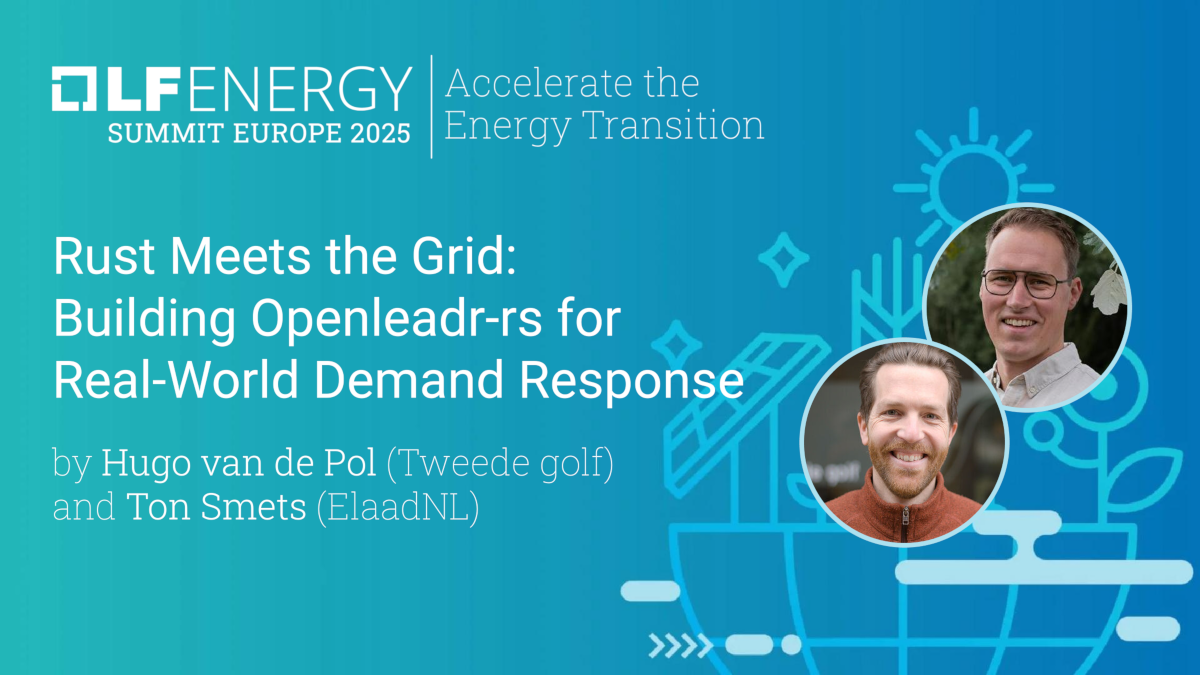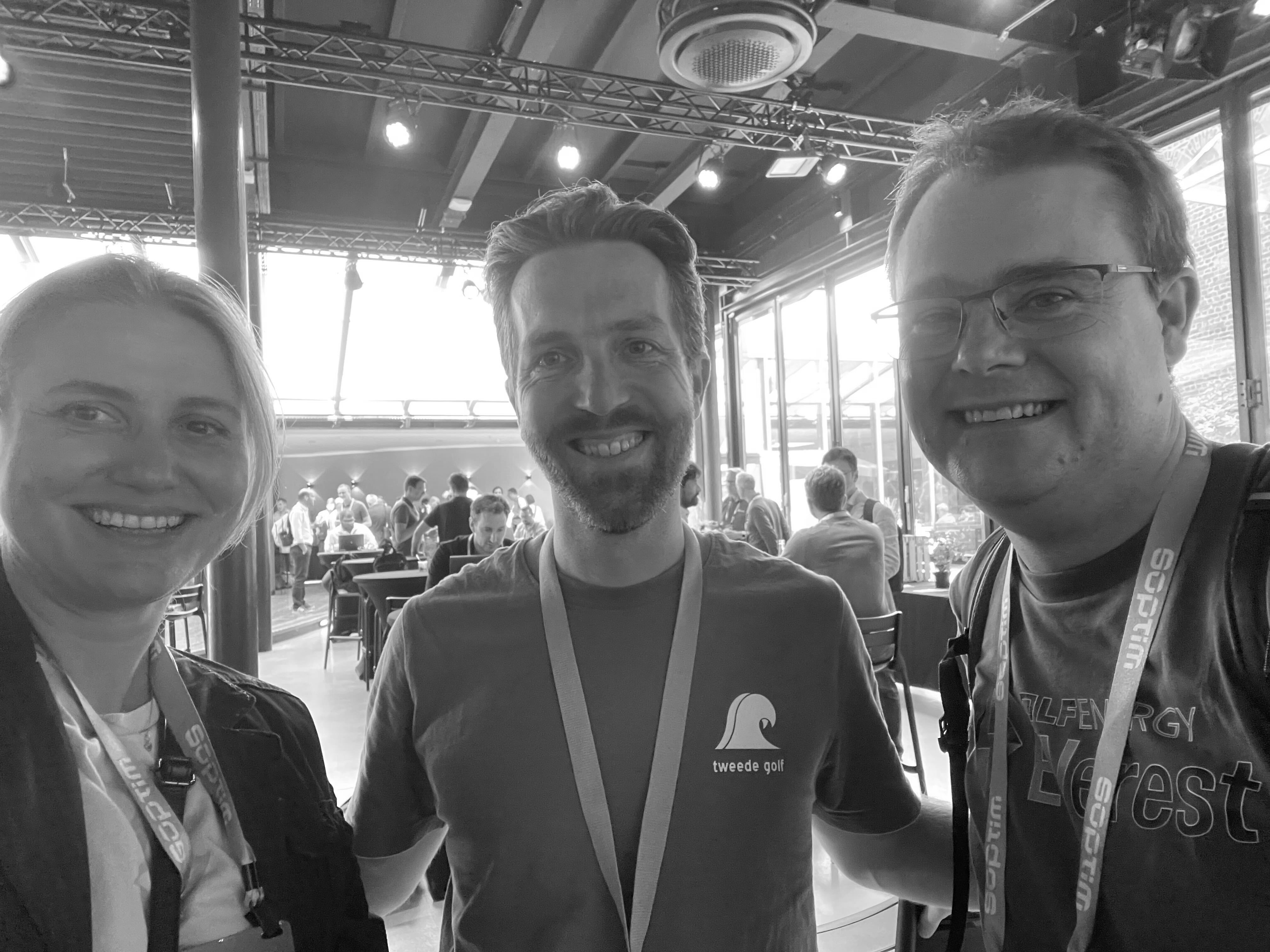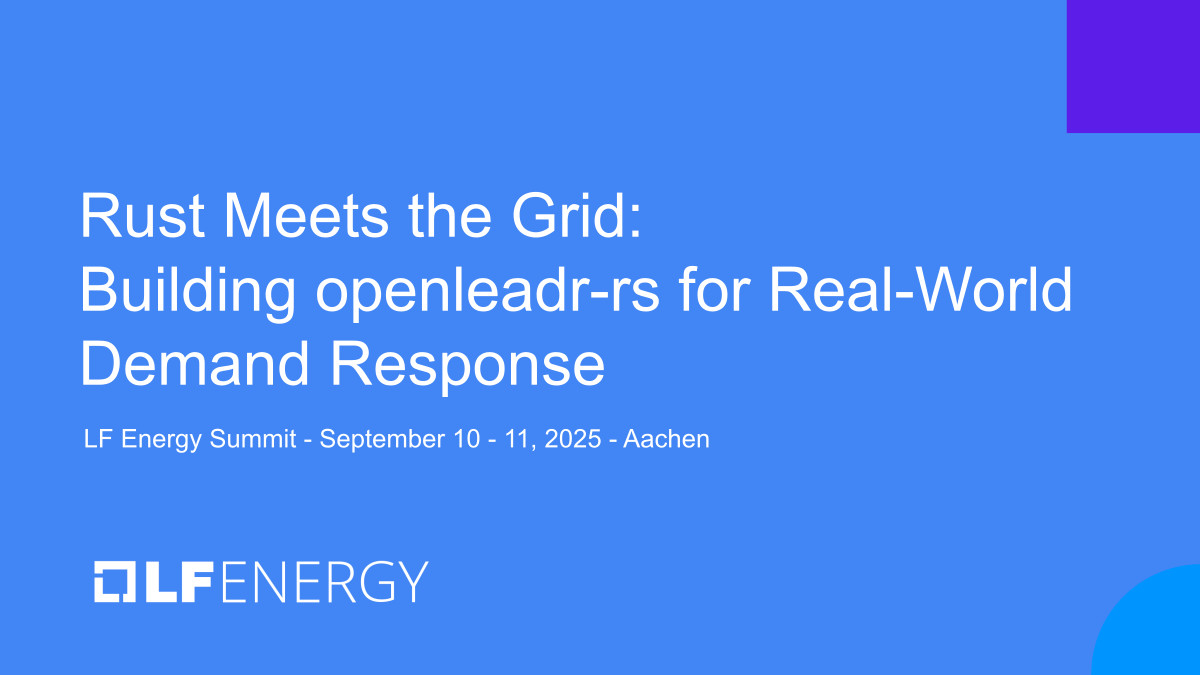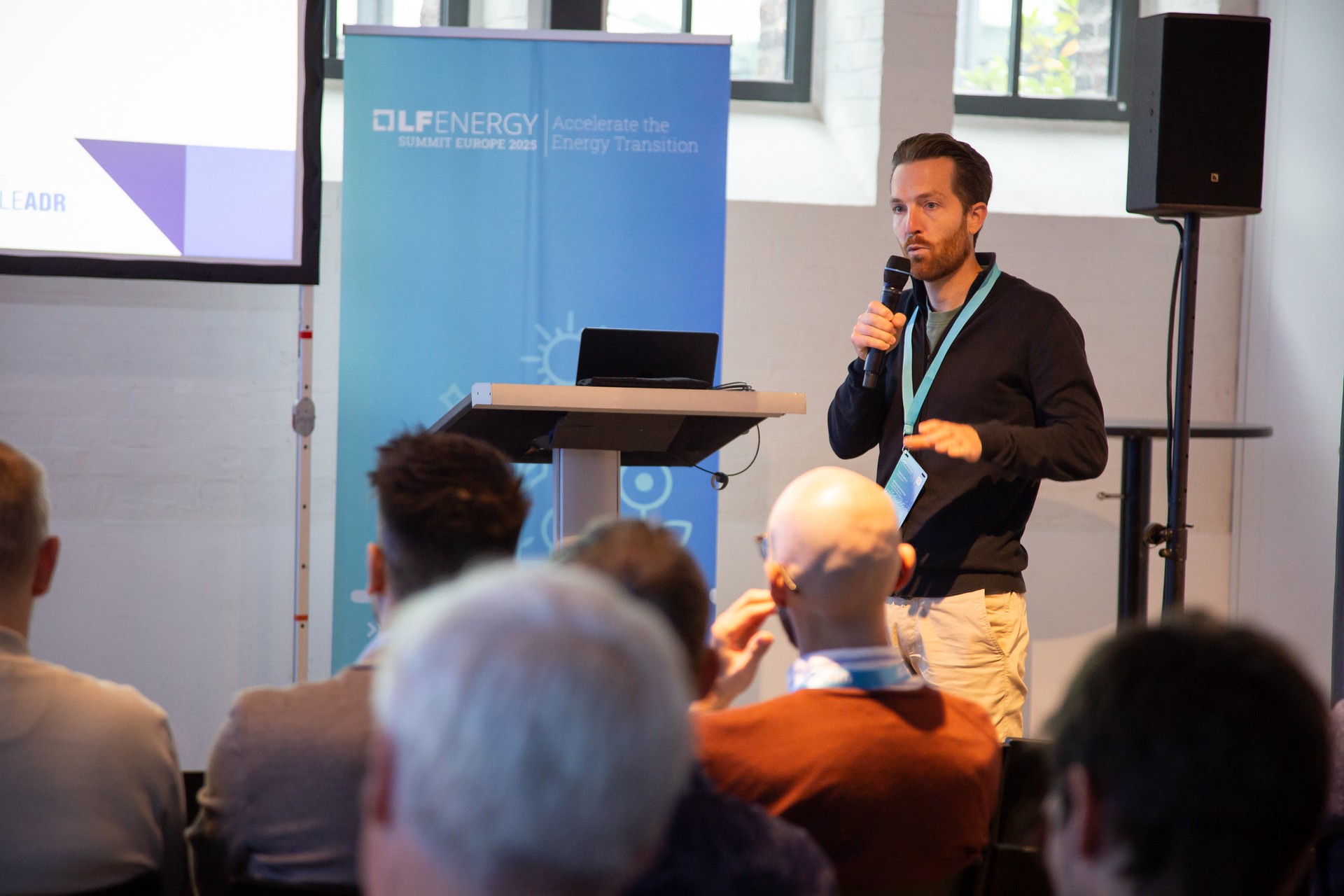Rust Meets the Grid: Building openleadr-rs for Real-World Demand Response

LF Energy Summit
The Linux Foundation Energy Summit Europe gathered “electric utilities, technology vendors, policymakers, regulators, global energy companies, researchers, and other industry stakeholders to learn about open source solutions for energy systems.”
This year’s event was an interesting one to attend, not only because we were there to present our own project, but also because I noticed a positive shift towards more awareness of the role that procurement processes can play in increasing the amount of open-source software used by influential parties like Distribution System Operators (DSOs), and reaping the benefits of doing so.
 Left to right: Arila Barnes from Energy IOT Open Source; Hugo van de Pol from Tweede Golf and Trifecta Tech Foundation; Marco Möller from Pionix, the creators of EVerest, an EV charging stack currently integrating openleadr-rs
Left to right: Arila Barnes from Energy IOT Open Source; Hugo van de Pol from Tweede Golf and Trifecta Tech Foundation; Marco Möller from Pionix, the creators of EVerest, an EV charging stack currently integrating openleadr-rs
Our project openleadr-rs
For about a year now, we have been collaborating with ElaadNL on an open-source implementation of the OpenADR 3.0 standard. ADR stands for automated demand response, which is about enabling the demand for electricity to become responsive to the supply, optimizing the use of our physical grid infrastructure. For more info on demand response, OpenADR 3.0 and our implementation, please read my previous article.
The repository of our project, openleadr-rs, currently contains an OpenADR 3.0 client (VEN) library, a server (VTN) implementation, and a (WIP) CLI for easy testing and prototyping, all written in Rust. For the so-called Grid Aware Charging use case in The Netherlands, these building blocks allow a DSO to set up a demand response program in which it sends events to different Charge Point Operators (CPOs), receiving back reports detailing what their actual response to an event was.
The talk
Ton Smets, who co-leads technical innovation projects at ElaadNL, and I presented openleadr-rs in our talk ‘Rust Meets the Grid: Building openleadr-rs for Real-World Demand Response'.
We discussed:
- the problem that openleadr-rs helps to solve
- the features it supports
- current adoption
- the project’s Roadmap
 Opening slide of our talk ‘Rust Meets the Grid: Building openleadr-rs for Real-World Demand Response'
Opening slide of our talk ‘Rust Meets the Grid: Building openleadr-rs for Real-World Demand Response'
Some of the highlights:
- In the Netherlands, three DSOs and eight CPOs are using openleadr-rs for Grid Aware Charging.
- ElaadNL is looking at broadening the scope of the project to also target Home Energy Management Systems (see RFP).
- We’re looking ahead at OpenADR 3.1: A new branch will be added to the repo soon, and we will be implementing the subscriptions feature, which we’ll base on WebSockets after carefully weighing pros and cons with engineers from ElaadNL and people directly involved with the development of the OpenADR spec itself.
- We restated our firm commitment to the project and asked the community for contributions, either by adding to the code (opening PRs) or by supporting the project financially.
The slides to our talk can be found here. You can watch the full talk on YouTube:
 Image: Hugo presenting at LF Energy Summit 2025
Image: Hugo presenting at LF Energy Summit 2025
Learn more
If you’d like to learn more about openleadr-rs, the OpenADR 3.0 (or 3.1) standard, or why using Rust for critical grid-related software will contribute to the resilience of these systems and our grid, please join the OpenADR Conference in Arnhem, NL on March 2026; We’ll present a more technical variation of our LF Energy Summit talk, and there will be a Vehicle-to-Grid (V2G) demonstration that uses openleadr-rs.
If you’d like to contribute code, don’t hesitate to head to the repository and get started with one of the ‘good first issues’. In case you need any help, contact us via the openleadr channel on the LF Energy Slack.
If your organisation is willing to support the project financially, please reach out to Hugo.
We’re very grateful for all the support we’ve received so far in making openleadr-rs an example of modern, open-source digital infrastructure that all stakeholders can depend on.
Looking to build on top of openleadr-rs?
Get help from the experts!
- Interoperability with your existing infrastructure
- New platforms and features
- Professional support